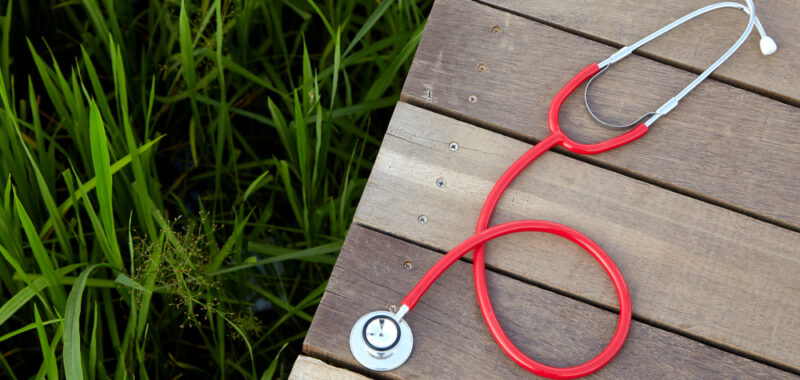An excerpt from The Medical Improv Toolkit: 10 Simple Activities to Promote Safe Care, Healthy Workplaces, & Rewarding Careers!
“Were there none who were discontented with what they have,
the world would never reach anything better.”
~Florence Nightingale
The expectation for dedicating time to playful activities can seem like a waste of time, especially with relentless clinical priorities and limited resources. In order to justify the time needed to proceed with this work, a longer vision, big picture, appreciation of the possible gains is needed. Envision a gym for communication fitness; instead of using different machines and exercises for physical fitness, you’ll have a toolkit of experiential activities for promoting a variety of communication-related skills. And with a little preparation, you can use and vary them now and then without a huge time commitment. With the exception of a little preliminary work, a few minutes of regular practice will contribute to positive interactions. And when you reach your goals, keep the practice going to sustain the gains you’ve made.
Understanding the vision
This Medical Improv Toolkit approach to changing communication-related behavior makes success more likely for several reasons:
- Psychological safety and levity are considered in facilitation.
- The pressure to perform clinically is eliminated.
- Growth takes place in areas where individuals are ready and with peers.
- Experiences over time allow for practicing new behaviors.
- Learning continues in real life/work situations.
The idea is to integrate experiential activities from Medical Improv and the skill-building that goes along with them into meetings that already exist such as:
- Clinical in-services
- Management and team meetings
- Grand rounds
- Orientation sessions
- Retreats
While teaching will be a little more time-consuming initially, once people get the idea and are more comfortable with the activities, almost any meeting can be enhanced with 5–10 or even 1–2 minutes of play.
Don’t worry, you don’t have to lead an activity every day or week. There is plenty of wiggle room for you to implement a regular Medical Improv activity practice that is realistic for you!
Addressing the challenges
While the Visionary Case Scenarios will give you ideas for using activities, in order for this approach to work in the real world, it is only fair to review it with respect to challenges you are likely facing. So let’s go back to the additional challenges and do that!
1. Challenge: Time and money are limited. This approach will not cost a lot of time or money. You’ll be using resources you already have and in the long run save on both! Just imagine dealing with fewer petty squabbles, unproductive conflicts, or power struggles among staff and you’ll get the idea!
2. Challenge: People have different strengths and opportunities for growth. Activities empower growth along the spectrum of social and emotional learning needs. In an activity done in pairs, one person may be gaining confidence and expressive skills while their partner learns to identify social cues and practice listening. Like that nurse who had never felt heard: In one simple activity, she was practicing speaking up and gaining an appreciation of how valuable listening could feel while her partner practiced and modeled listening skills. This is an elegant design for teamwork that also builds positive interprofessional and therapeutic relationships.
3. Challenge: Traditional teaching methods are not very effective. Unlike many traditional teaching methods such as lectures and reading assignments in medical and academic settings, social and emotional learning requires an experiential emphasis as provided in this manual. If you are involved in medical, nursing, or other clinical simulation you already appreciate this difference. In fact, you may find that improv activities can be used to enhance any personal growth aspects in the design of your simulation training.
4. Challenge: Growth can feel emotionally risky. Sometimes our propensities to interrupt another during a conflict or hesitation to speak up in a group are grounded in fear or anxious impulses such as a fight, flight, or freeze response. As stated earlier, the activities are intellectually simple. It is the context, facilitation, and experience that promote deep learning. Facilitation tips are included to help minimize the emotional risk many people face in doing the activities and in learning and practicing new behavior. Since the activities have little to no clinical significance, take place with peers, and are fun, the risk is likely further diminished. Keep in mind our goal isn’t to eliminate the emotional risk, but rather to make it safe enough to take it and have a positive learning experience.
5. Challenge: Cultures may be toxic with bullying or blaming, which makes it hard to practice healthy communication and behavior. All of the skill-building and behavior changes Medical Improv Toolkit activities promote are the opposite of those that contribute to bullying, blaming, or otherwise toxic cultures. In such conditions, the activities are not a quick fix, but over time and with practice (and, if needed, organizational development support), they provide healthier social experiences and the creation of new norms.
6. Challenge: This kind of teaching can feel awkward. This is true, and while I don’t know how to eliminate that aspect of bringing this work forward, there are three points that can help:
a. First, remember how awkward it felt to give your first injection, write your first prescription, direct your first code! New things can feel scary and it hasn’t stopped you so far!
b. Second, it gets easier with practice.
c. And third, you’ll have empathy for your staff who may find activities to be uncomfortable or intimidating.
A few minutes of facilitated Medical Improv Toolkit activities weekly, monthly, or quarterly — whether by one champion team leader on one unit or a management team activating a system-wide initiative — will initiate ripple effects of positive change.
Beth Boynton is a nurse consultant and author of The Medical Improv Toolkit: 10 Simple Activities to Promote Safe Care, Healthy Workplaces, & Rewarding Careers!


